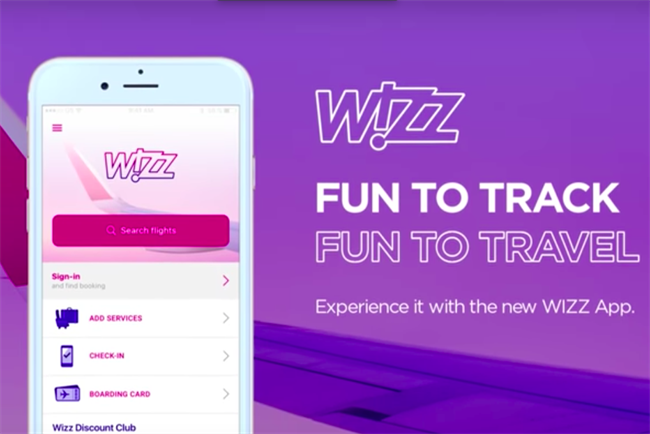
Thirteen-year-old airline Wizz Air recently signed a multibillion-pound deal to buy 146 Airbus A320neo aircraft, signalling its intent to expand.
Soon after, on 20 November, it expanded its flights from Luton by 15% year on year with four more Airbus A320 aircraft. It also added five new routes from Luton to Larnaca in Cyprus, Bratislava in Slovakia, Tallinn in Estonia, Tirana in Albania and Lviv in Ukraine.
While much of its double-digit passenger growth numbers have been achieved by targeting under-serviced central and eastern Europan markets, Wizz Air is aware that customer loyalty isn't sustained with low price points.
"We've been trying to see how we can change the softer value of flying, but using digital," said Johan Eidhagen, the chief marketing officer of Wizz Air. "Price is a big motivator, but it isn't everything. You want to be on time, arrive safely and in relative comfort. We think we can use digital to improve everything."
As most of Wizz Air's customer base are young Eastern Europeans who are mobile natives, its entire brand experience is designed to be mobile first.
"Two-thirds of all our online business is mobile-driven, so we are very focused on the UX and UI of mobile," Eidhagen said. "The goal is to deliver a fast and easy booking experience, with express booking. For example you can book a flight with one click."
But Wizz Air has taken the flexibility offered by mobile apps a step further than most other airlines. It will allow its passengers to decide if they need to book more check-in luggage (at no extra cost than when they first booked the flights) at the time of check-in, two hours ahead of the flight.
It also works with its young customer base to tailor special features to suit them.
"From speaking to university students, one thing we found was that they wanted to book early to secure good rates, but did not always know who they would want to travel with in three to six months. So we have introduced a feature where you can buy a flight for up to three people and decide later who will be travelling with you," Eidhagen said.
Wizz Air also introduced Fare Lock, for customers who aren't ready to complete the booking process but are afraid that if they leave and come back the fares will go up. The service lets passengers reserve fares for up to 48 hours for a small fee.
Eidhagen's marketing philosophy for Wizz Air is to provide a "guiding hand": "I believe in a more guided or democratic model which lets customers choose with complete transprency," he said.
This is reflected in the brand's social media presence. While it works with branding agency Futurebrand, creative agency Ogilvy Budapest and PR agency FTI, some of its social content is generated by its own crew members.
"We have a campaign called #IamWizzCrew that lets our crew members market themselves. We recruit members with strong followers on social media and they create materials we share. Customers think the brand is youthful, vibrant, value for money and definitely fun," Eidhagen said.
Social media though is more important for Wizz Air as a direct channel to its customers. "If they're unhappy or stuck somewhere, it gives us the tools we need to help them," he said.

Eidhagen's goal for the brand's evolution is to move from the "awareness-building, look at me-look at me stage to the love and meaning stage" so that Wizz Air will always earn its place on the customer's phone.
"Most people will have about ten commercial apps on the phone. But they will only choose a few brands to engage with. As we move deeper into personalisation, fuelled by analytics and business intelligence, it's increasingly not just about understanding the customer but allowing the customer to make the decisions that work best for them," Eidhagen said.
By building up a reputation for thoughtful mobile UX, Wizz Air aims to extend its reach to all stages of travel planning.
"If the customer finds our brand to be trusted and reliable, they will also trust our brand in terms of providing the best choice of airport parking or where they should eat. We also tell someone which taxi cabs to take at the gate – we can become the trusted travel guide," Eidhagen said. "Being an airline isn't good enough, we want to be the trusted travel buddy that's there every step of the way."


